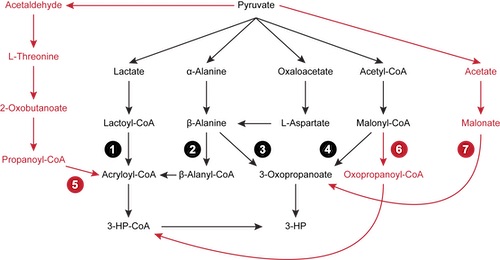Mining Metabolic and Enzyme Databases for the Composition of Non-canonical Pathways

This project will develop and implement a set of algorithms for the discovery of complex metabolic pathways using information on metabolic pathways from different species available in databases such as KEGG and MetaCyc, and enzyme information available in databases such as BRENDA. The increasing availability of experimentally elucidated metabolic pathways together with the availability of enzyme functional data have ignited research in metabolic engineering and metabolomics. Recently, metabolic engineering has facilitated the production of complex pharmaceutical molecules by combining and manipulating metabolic pathways from multiple organisms. Metabolomic studies have revealed underlying causes of complex diseases and have helped diagnostic, prognostic, and treatment regimens as these evolve toward more individualized protocols. These spectacular advances have mostly relied upon laborious manual processes that are infeasible as more and more metabolic data are generated. The ability of the algorithms that will developed herein to discover known pathways will be investigated thoroughly and will include wetlab experimentation with two model studies. The studies involve niacin and shikonin, two therapeutic agents. Computational and wetlab experimentation will be conducted in parallel, with the computation feeding the experiment and the experiment providing valuable feedback for the tuning of the parameters of the corresponding algorithms. A web server will be built to facilitate the use of our tools and to widely disseminate our work in the scientific community. The research is timely and directed toward an important area of broad scientific interest with implications extending to fields such as health and energy. The project will provide training opportunities for graduate and undergraduate students. Participation in this type of research will provide graduate students with interdisciplinary training in metabolic engineering, metabolomics, systems biology, biochemistry, and molecular biology, as well as in mathematical modeling, algorithms, and computer science. The project will provide training opportunities and mentoring for women and minority graduate, undergraduate, and high school students.
This work has been supported by grant NSF ABI 1262491.
Related Publications
- S. M. Kim, M. I. Peña, M. Moll, G. N. Bennett, and L. E. Kavraki, “Improving the organization and interactivity of metabolic pathfinding with precomputed
pathways,” BMC Bioinformatics, vol. 21, no. 1, p. 13, Jan. 2020. PMID: 31924164, PMCID: PMC6954563
Details - E. E. Litsa, M. I. Pena, M. Moll, G. Giannakopoulos, G. N. Bennett, and L. E. Kavraki, “Machine Learning Guided Atom Mapping of Metabolic Reactions,” Journal of Chemical Information and Modeling, vol. 59, no. 3, pp. 1121–1135, 2019. PMID: 30500191
Details - S. M. Kim, M. I. Peña, M. Moll, G. N. Bennett, and L. E. Kavraki, “A Review of Parameters and Heuristics for Guiding Metabolic Pathfinding,” Journal of Cheminformatics, vol. 9, no. 1, p. 51, Sep. 2017. PMCID: PMC5602787, PMID: 29086092
Details - S. M. Kim, M. I. Peña, M. Moll, G. Giannakopoulos, G. N. Bennett, and L. E. Kavraki, “An Evaluation of Different Clustering Methods and Distance Measures Used for Grouping
Metabolic Pathways,” in 2016 International Conference on Bioinformatics and Computational Biology. ISCA, 2016, pp. 115–122.
Details - D. A. Antunes, D. Devaurs, and L. E. Kavraki, “Understanding the challenges of protein flexibility in drug design,” Expert Opinion on Drug Discovery, vol. 10, no. 12, pp. 1301–1313, 2015. PMID: 26414598
Details